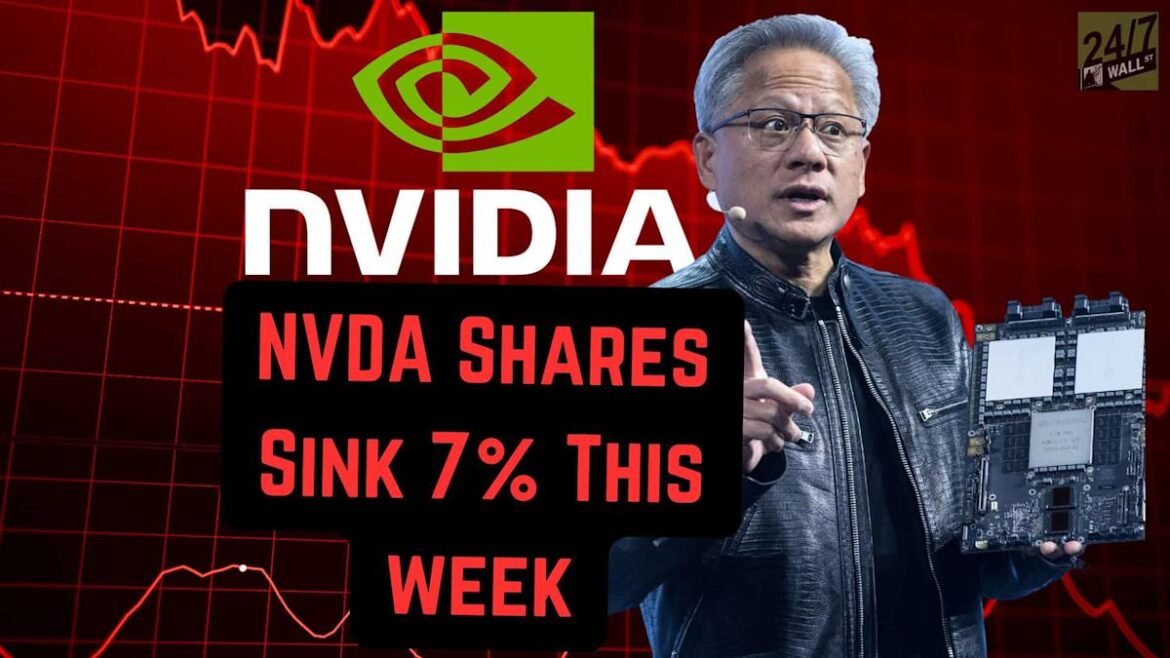Nvidia (NVDA) fell 7.1% this week and briefly entered correction territory after dropping from $211.34 to $178.91. The main events leading to NVIDIA’s fall included a general ‘risk-off’ in the market and comments from OpenAI adding pressure to AI infrastructure stocks.
In earnings news, NVIDIA’s main rival AMD forecast $9.6B in revenue next quarter and projects tens of billions from data centers by 2027.
OpenAI CEO comments on financing $1.4T spending commitments and seeking government backstop spooked AI investors.
Some investors get rich while others struggle because they never learned there are two completely different strategies to building wealth. Don’t make the same mistake, learn about both here.
Shares of NVIDIA (Nasdaq: NVDA) dropped 7.1% this week, sinking sharply after hitting a high of $211.34 on Monday morning. Yet, even with the losses, NVIDIA shares had quickly plummeted into correction territory midday Friday. Shares sank to a low of $178.91 before rebounding to close the day at $188.15, a slight gain from Thursday’s close.
So, the big question facing NVIDIA investors is whether last week’s losses were the result of ‘market noise’ or were a signal of something larger and more troubling. Let’s dive into 3 catalysts that led to this week’s sell-off.
The Nasdaq Composite fell more than 3% last week. Tech stocks in particular were under pressure with the Technology Select Sector SPDR (NYSE: XLK) down 4.2% NVIDIA may have fallen 7.1%, but other semiconductor stocks also fell. Broadcom (Nasdaq: AVGO) fell 5.5% while AMD (Nasdaq: AMD) plunged 8.8%.
The biggest news among this group of companies at the forefront of producing AI accelerators was AMD’s earnings. Overall, the earnings were a positive piece of news for the industry. AMD forecast outlook of $9.6 billion next quarter, far ahead of Wall Street estimates of about $9.2 billion. Looking further out, AMD projects ‘tens of billions’ in revenue from their data center business from 2027. If you’re an ‘AI bull’ who believes the cycle is far from slowing down, AMD’s earnings generally supported that idea.
If you’re looking for reasons the broader market took a nose dive this week, it appeared to be a broader ‘risk-off.’ Most days, technology stocks fell, more defensive industries like Financials, Healthcare, and Consumer Staples rose. Macroeconomic headlines like consumer confidence plummeting amidst the continuing government shutdown also rattled markets.



